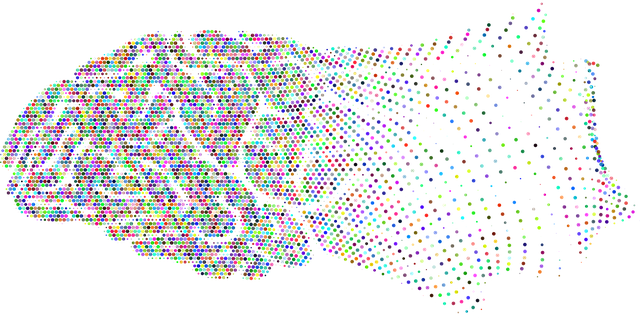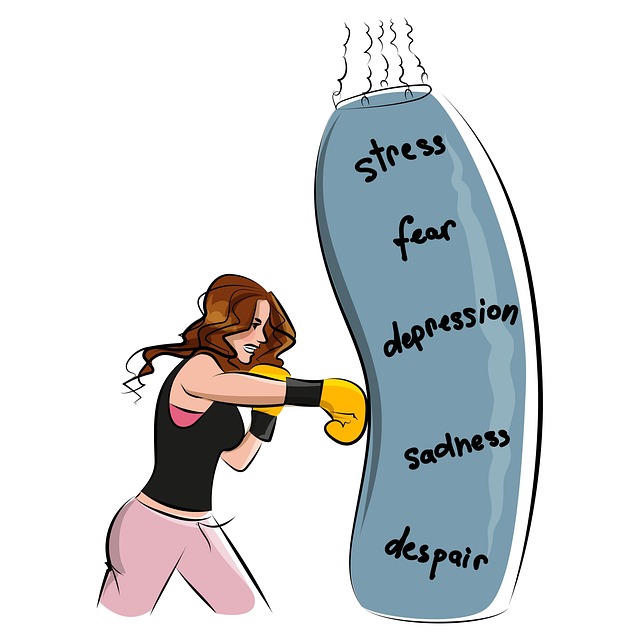Englewood Gambling Therapy (EGT) offers a holistic, resilience-focused approach to treat gambling addiction. They combine mindfulness meditation, Mental Health Education, and tailored interventions based on Risk, Frequency, and Money spent (RFM). Through Resilience Building Exercises (RBE), education campaigns, and personalized care, EGT equips clients with self-management tools for long-term recovery. Measuring success through behavioral and emotional responses, the program continuously improves using feedback and adapted techniques like Conflict Resolution and stress management to enhance overall well-being.
Englewood Gambling Therapy (EGT) offers a unique, evidence-based approach to resilience building. By combining cognitive behavioral techniques with dynamic exercises, EGT empowers individuals to overcome challenges and enhance their mental fortitude. This article explores the integration of RFM (Risk, Frequency, and Money) analysis within EGT’s framework. We delve into practical strategies for implementing resilience training sessions, measuring success, and fostering continuous improvement. Discover how this innovative therapy can revolutionize personal growth and well-being.
- Understanding Englewood Gambling Therapy: A Unique Approach
- The Role of RFM in Resilience Building Exercises
- Implementing Practical Resilience Training Sessions
- Measuring Success and Continuous Improvement
Understanding Englewood Gambling Therapy: A Unique Approach

Englewood Gambling Therapy offers a unique and innovative approach to addressing gambling addiction, integrating various therapeutic techniques. This comprehensive method goes beyond traditional treatment by focusing on resilience building through exercises tailored to individuals’ experiences. The therapy leverages mindfulness meditation practices to help clients gain control over their impulses, a crucial step in depression prevention. By incorporating Mental Health Education Programs Design, participants learn about the underlying causes of gambling behaviors and develop strategies to manage stress and emotions effectively.
This holistic approach ensures that individuals not only overcome their addiction but also build long-lasting resilience, enabling them to navigate challenging situations without resorting to problematic gambling behaviors. The therapy’s success lies in its ability to empower individuals with tools for self-management, fostering a sense of control over their mental health and overall well-being.
The Role of RFM in Resilience Building Exercises

Resilience is a vital asset in navigating life’s challenges, and Englewood Gambling Therapy (EGT) recognizes this through its innovative Resilience Building Exercises (RBE). RFM, or Risk, Frequency, and Money spent, plays a crucial role in EGT’s approach. By assessing these factors, therapists can tailor interventions to address specific vulnerabilities. For instance, individuals who frequently engage in gambling despite significant financial losses may require enhanced mood management strategies and self-care routine development for better mental health.
RBE incorporates public awareness campaigns development to educate individuals on the signs of addiction and available support systems. This proactive approach not only helps current gamblers but also fosters a culture where resilience is nurtured from an early age, potentially preventing future at-risk behaviors. Through RFM analysis, EGT ensures that each client receives personalized care, promoting true transformation and enhanced coping mechanisms.
Implementing Practical Resilience Training Sessions

Implementing practical resilience training sessions is a key step in equipping individuals with the tools to navigate life’s challenges. These sessions, often tailored by professionals like those at Englewood Gambling Therapy, focus on teaching participants how to manage stress, adapt to change, and bounce back from setbacks. Through interactive activities and exercises, individuals learn effective coping strategies that enhance their emotional well-being promotion techniques.
The structure of these training programs involves a combination of theoretical knowledge and practical exercises. Risk assessment for mental health professionals plays a crucial role in designing sessions that cater to individual needs while ensuring the safety and well-being of all participants. Additionally, self-care routine development is emphasized as an integral part of building resilience, encouraging individuals to prioritize their mental health through consistent practice.
Measuring Success and Continuous Improvement

Measuring success is a vital aspect of any resilience-building initiative. In the context of Englewood Gambling Therapy, evaluating progress involves assessing changes in participants’ behavior and emotional responses to stressful situations. By employing tools like before-and-after surveys and observation, therapists can gauge improvements in areas such as decision-making skills and coping mechanisms. The goal is not just to reduce gambling-related issues but also to enhance overall well-being and resilience.
Continuous improvement requires regular reflection and adaptation. After implementing resilience-building exercises, the Stress Management Workshops Organization should solicit feedback from participants and therapists alike. This data can highlight what’s working and where adjustments are needed. By integrating Conflict Resolution Techniques and focusing on sustained stress management, the program can evolve to better meet the unique needs of its clients. Such an iterative process ensures that the exercises remain effective and relevant in helping individuals navigate life’s challenges.
Englewood Gambling Therapy’s unique approach, centered around RFM (Reconsideration, Forgiving, and Moving Forward), offers a powerful framework for building resilience. By integrating these exercises into therapeutic practices, individuals can effectively navigate life’s challenges and foster a sense of empowerment. The practical implementation guidelines provided ensure that anyone can facilitate these sessions, making resilience training accessible to all. Continuous improvement is key; by measuring success and adapting strategies, the RFM model empowers individuals to thrive in a constantly evolving world, ultimately enhancing their overall well-being.














